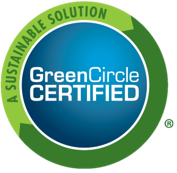How Smarter Packaging Can Drive the Circular Economy
Optimizing product packaging isn’t just good for the planet; it is becoming imperative for businesses. In a Tad Talks Sustainability Podcast episode, Tad and Julianna sat down with Kelly McBee, Circular Economy Manager at As You Sow, to unpack how companies are being held accountable for their plastic usage and what steps they can take to lead in sustainability.
Who Is As You Sow and Why Sustainable Packaging Matters
As You Sow is a nonprofit that works to promote corporate responsibility through shareholder advocacy. One of its key initiatives is to push major companies toward more sustainable packaging practices and they are doing that with a powerful accountability tool: the Corporate Plastic Pollution Scorecard.
This scorecard ranks companies based on their progress toward plastic waste reduction goals. According to Kelly, it was developed in response to financial institutions and investors demanding greater transparency into which companies are actively working to eliminate packaging waste and contribute to a circular economy.
Behind the Scorecard: 44 Metrics Across 6 Key Pillars
The scorecard features 44 metrics spread across six core areas:
Packaging Design
Use of Recycled Content
Reusable Packaging
Packaging Transparency
Support for U.S. Recycling Infrastructure
Extended Producer Responsibility (EPR)
Input was gathered from NGOs, corporations, and stakeholders to shape this robust framework. It gives investors and the public a detailed view of corporate efforts on plastic pollution.
How Companies Can Improve Their Scores
So, what separates leaders from those falling behind in sustainable packaging?
Kelly says it starts with adopting a circular mindset from the beginning of packaging design. Companies need to view themselves as responsible not just until the point of sale, but all the way through a package’s end of life, whether that’s through recycling, reuse, or disposal.
Some top recommendations from the scorecard include:
Integrate circularity into product design. Build packaging that can be reused, recycled, or composted.
Invest in reusable systems. Most companies scored poorly here, and there is huge room for improvement.
Support extended producer responsibility (EPR). That includes backing legislation that shifts financial responsibility for packaging waste back to the producer.
One company making strides? Coca-Cola, who was the highest scoring company in As You Sow’s second scorecard. They are investing in collection infrastructure and committed to selling 25% of their products in reusable or container-free formats by 2030. Pepsi has since followed suit with a similar goal.
The Role of Third-Party Certifications
One standout recommendation in the report is the requirement for third-party certifications and there’s a clear reason why.
“Investors don’t want greenwashing,” says Kelly. Third-party certifications from organizations like GreenCircle Certified ensure that companies are actually meeting their sustainability claims, not just marketing them.
Certifications also standardize and validate sustainability claims, which is essential for building investor trust and driving real progress. When companies claim to use recycled materials, for example, certifications confirm whether that material is truly recycled not just newly manufactured but labeled as sustainable.
Why This All Matters
A circular economy only works if every link in the chain is accountable from product design to disposal to reuse. Without verified commitments and infrastructure support, recycling efforts fall flat, and packaging continues to pollute our environment.
Through tools like the Plastic Pollution Scorecard, organizations like As You Sow are pushing for a shift: from short-term fixes to long-term product stewardship.
Businesses must take ownership of their packaging beyond the point of sale and reimagine it as a material resource, not just waste.
Listen to the Full Podcast Episode
In the full podcast episode, Tad, Julianna, and Kelly tackle the following questions:
What is the Corporate Plastic Pollution Scorecard and what was the key criteria used in scoring?
What are some learnings that came out of the report?
Why third-party certifications are so important in the achievement of corporate plastic reduction goals?
Click the button below to listen to the podcast on Spotify, Apple Podcasts, or any of our additional streaming platforms.




